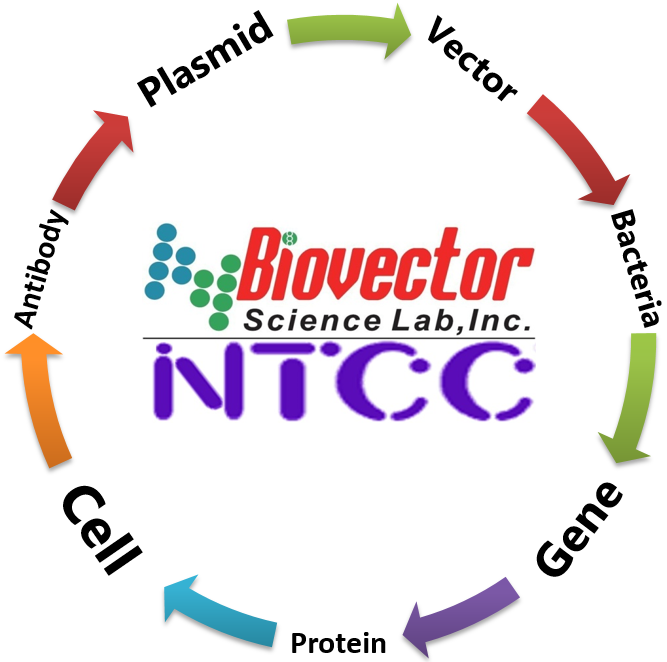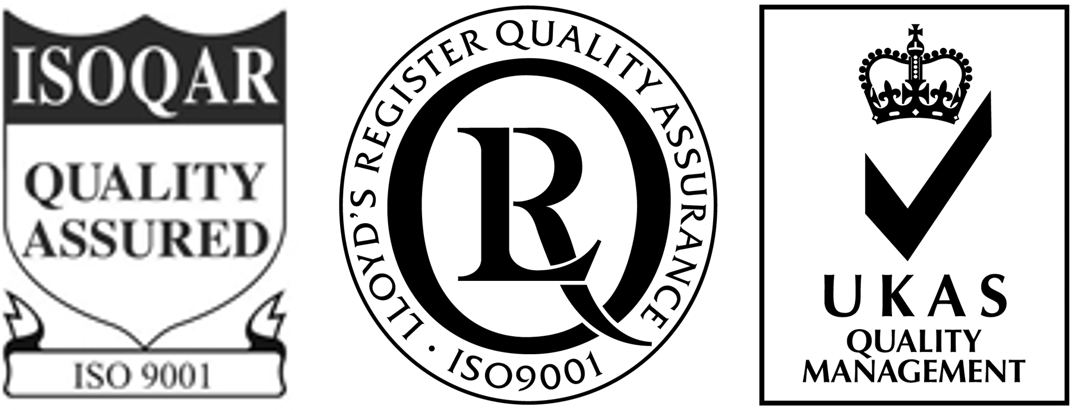BL21-CodonPlus系列大肠杆菌菌株-感受态细胞-BioVector NTCC质粒载体菌种细胞蛋白抗体基因保藏中心
- 价 格:¥8932
- 货 号:BL21-CodonPlus系列 大肠杆菌菌株-感受态细胞
- 产 地:北京
- BioVector NTCC典型培养物保藏中心
- 联系人:Dr.Xu, Biovector NTCC Inc.
电话:400-800-2947 工作微信:1843439339 (QQ同号)
邮件:Biovector@163.com
手机:18901268599
地址:北京
- 已注册
BL21-CodonPlus系列大肠杆菌菌株-感受态细胞-BioVector NTCC质粒载体菌种细胞蛋白抗体基因保藏中心
INTRODUCTION
BL21-CodonPlus® competent cells* are derived from Stratagene’s highperformance
BL21-Gold competent cells.1 These cells enable efficient highlevel
expression of heterologous proteins in Escherichia coli.
Efficient production of heterologous proteins in E. coli is frequently limited
by the rarity of certain tRNAs that are abundant in the organisms from
which the heterologous proteins are derived.ll Forced high-level expression
of heterologous proteins can deplete the pool of rare tRNAs and stall
translation. BL21-CodonPlus strains are engineered to contain extra copies
of genes that encode the tRNAs that most frequently limit translation of
heterologous proteins in E. coli. Availability of tRNAs allows high-level
expression of many heterologous recombinant genes in BL21-CodonPlus
cells that are poorly expressed in conventional BL21 strains.
BL21-CodonPlus-RIL and BL21-CodonPlus(DE3)-RIL cells contain extra
copies of the argU, ileY, and leuW tRNA genes. These genes encode tRNAs
that recognize the arginine codons AGA and AGG, the isoleucine codon
AUA, and the leucine codon CUA, respectively (Table I). The CodonPlus-
RIL strains have available the tRNAs that most frequently restrict
translation of heterologous proteins from organisms that have AT-rich
genomes. BL21-CodonPlus-RP and BL21-CodonPlus(DE3)-RP cells
contain extra copies of the argU and proL genes. These genes encode
tRNAs that recognize the arginine codons AGA and AGG and the proline
codon CCC, respectively. The CodonPlus-RP strains have available the
tRNAs that most frequently restrict translation of heterologous proteins of
organisms that have GC-rich genomes. The BL21-CodonPlus (DE3)-RIPL
cells contain extra copies of the argU, ileY, and leuW as well as the proL
tRNA genes. This strain rescues expression of heterologous proteins from
organisms that have either AT- or GC-rich genomes.
Extra Copies of tRNA Genes in BL21-CodonPlus Strains
Host strain tRNA genes (codon recognition of gene product) Antibiotic
resistance
BL21-CodonPlus(DE3)-RIPL strain argU (AGA, AGG), ileY (AUA) , proL (CCC), leuW (CUA) Camr
Strep/Specr
BL21-CodonPlus-RIL strain argU (AGA, AGG), ileY (AUA), leuW (CUA) Camr
BL21-CodonPlus(DE3)-RIL strain argU (AGA, AGG), ileY (AUA), leuW (CUA) Camr
BL21-CodonPlus(DE3)-RIL-X strain argU (AGA, AGG), ileY (AUA), leuW (CUA) Camr
BL21-CodonPlus-RP strain argU (AGA, AGG), proL (CCC) Camr
BL21-CodonPlus(DE3)-RP strain argU (AGA, AGG), proL (CCC) Camr
BL21-CodonPlus(DE3)-RP-X strain argU (AGA, AGG), proL (CCC) Camr
The BL21-CodonPlus(DE3) strains (Table II) are ideal for performing
protein expression studies that utilize the T7 RNA polymerase promoter to
direct high-level expression. The BL21-CodonPlus-RIL and
BL21-CodonPlus-RP strains can be used for protein expression with vectors
driven by non-T7 promoters. The methionine auxotrophic variants
BL21-CodonPlus(DE3)-RIL-X and BL21-CodonPlus(DE3)-RP-X allow
efficient labeling of recombinant proteins with selenomethionine or
35S-methionine. Both strains contain a transposon in the metA gene that
renders the cells incapable of synthesizing methionine. Derived from E. coli
B, the BL21-CodonPlus expression strains naturally lack the Lon protease,
which can degrade recombinant proteins. In addition, these strains are
engineered to be deficient for a second protease, the OmpT protein.
BL21-CodonPlus competent cells also feature the Hte phenotype* present in
Stratagene's highest efficiency strain, XL10-Gold® ultracompetent cells.2
The presence of the Hte phenotype increases the transformation efficiency
of the cells. In addition, the gene that encodes endonuclease I (endA), an
enzyme that rapidly degrades plasmid DNA isolated by most miniprep
procedures, has been inactivated in these cells. These two features enable
direct cloning of many protein expression constructs.
Host Strains and Genotypes
Host straina Genotype
BL21-CodonPlus(DE3)-RIPL strain E. coli B F– ompT hsdS(rB
– mB
–) dcm+ Tetr gal λ(DE3) endA Hte [argU proL
Camr] [argU ileY leuW Strep/Specr]
BL21-CodonPlus-RIL strain3 E. coli B F– ompT hsdS(rB
– mB
–) dcm+ Tetr gal endA Hte [argU ileY leuW
Camr]
BL21-CodonPlus(DE3)-RIL strain3 E. coli B F– ompT hsdS(rB
– mB
–) dcm+ Tetr gal λ(DE3) endA Hte [argU ileY
leuW Camr]
BL21-CodonPlus(DE3)-RIL-X strain3 E. coli B F– ompT hsdS(rB
– mB
–) dcm+ Tetr gal λ(DE3) endA metA::Tn5(kanr)
Hte [argU ileY leuW Camr]
BL21-CodonPlus-RP strain3 E. coli B F– ompT hsdS(rB
– mB
–) dcm+ Tetr gal endA Hte [argU proL Camr]
BL21-CodonPlus(DE3)-RP strain3 E. coli B F– ompT hsdS(rB
– mB
–) dcm+ Tetr gal λ(DE3) endA Hte [argU proL
Camr]
BL21-CodonPlus(DE3)-RP-X strain3 E. coli B F– ompT hsdS(rB
– mB
–) dcm+ Tetr gal λ(DE3) endA metA::Tn5(kanr)
Hte [argU proL Camr]
a These strains, derivatives of E. coli B, are general protein expression strains that lack both the Lon protease and the
OmpT protease, which can degrade proteins during purification.4 Dcm methylase, naturally lacking in E. coli B, is
inserted into the genomes.
Table III

Expression strains Induction Advantages Disadvantages
BL21-CodonPlus-RIL
competent cells
BL21-CodonPlus-RP
competent cells
Infection with lambda
bacteriophage CE6
Tightest control of
uninduced expression
Induction is not as efficient as
in DE3 derivatives and
induction (infection) process
is more cumbersome
BL21-CodonPlus(DE3)-RIPL
competent cells
BL21-CodonPlus(DE3)-RIL
competent cells
BL21-CodonPlus(DE3)-RP
competent cells
Isopropyl-1-thio-β-Dgalactopyranoside
(IPTG) induction of T7
polymerase from
lacUV5 promoter
High-level expression Leaky expression of T7
polymerase can lead to
uninduced expression of
potentially toxic proteins
BL21-CodonPlus(DE3)-RIL-X
competent cells
BL21-CodonPlus(DE3)-RP-X
competent cells
Isopropyl-1-thio-β-Dgalactopyranoside
(IPTG) induction of T7
polymerase from
lacUV5 promoter
High-level expression
Efficient labeling of
recombinant proteins with
methionine derivatives
Leaky expression of T7
polymerase can lead to
uninduced expression of
potentially toxic proteins
- 公告/新闻




